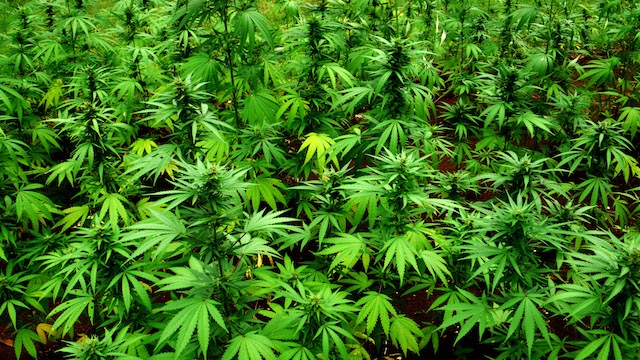
How far ought government to go in regulating cannabis and, correspondingly, how much regulation is too much? asks Paul-Michael Keichel.
We’ve all heard the old caution against using sledgehammers to crack nuts.
Turns out, it features in our Constitution. It also finds
application in the ongoing debate around how to constitutionally regulate cannabis
in South Africa.
Where are we now with cannabis reform, post the recent State of the Nation Address? Various civil society organisations, business interests, and individuals are, as part of a coordinated private sector working group, engaging with an interdepartmental government working group and the Office of the Presidency.
How far ought government to go in regulating cannabis and, correspondingly, how much regulation is too much?
Section 1 of the Constitution reads:
"The Republic of South Africa is one sovereign, democratic state founded on the following values:
(a) Human dignity, the achievement of equality and the advancement of human rights and freedoms …".
Section 36 reads:
"(1) The rights in the Bill of Rights may be limited only in terms of law of general application to the extent that the limitation is reasonable and justifiable in an open and democratic society based on human dignity, equality and freedom, taking into account all relevant factors, including—
(a) the nature of the right;
(b) the importance of the purpose of the limitation;
(c) the nature and extent of the limitation;
(d) the relation between the limitation and its purpose; and
(e) less restrictive means to achieve the purpose …"
These must be considered together. Without addressing the Court jurisprudence that has given these and other sections rich meaning, it is immediately apparent that government lawmakers must prefer advancing human rights and freedoms over limiting them.
It is equally clear that, when they do propose to limit them, they must satisfy themselves and society of that: (1) the importance and purpose of the limitation outweighs the nature and importance of the right; (2) the nature and extent of the limitation is appropriate in the circumstances; (3) the limitation would serve its intended, legitimate purpose; and (4) mindful of the rest, that there are no less restrictive means available to achieve the purpose.
In this case, the purpose of proposing to limit a number of very important constitutional rights would be to ‘prevent harm’ to users of cannabis and society.
Certain harms do indeed exist, but have been massively overstated. Accordingly, how important can we say that it genuinely is to limit those harms, especially mindful of maintaining consistency with how we treat more harmful things like – and users of – tobacco and alcohol?
None of this is to say that we ought to do nothing about preventing established cannabis harms, but it does speak to the need to be circumspect in our interventions.
Certainly, we must balance harm-reduction motivations with the severe and established harms of being exposed to the criminal justice system. In doing so, we will make sure that we are over-all reducing harm and not, inadvertently, increasing it, because that would mean that the limitation unconstitutionally achieved the opposite of its intended purpose.
Vitally, government has known about a less-restrictive and yet more-effective means of reducing drug harms for quite some time: that is, to treat the established harms of drugs as a medical and social – instead of a criminal justice – concern, and to stop sending sick and desperate people to prison.
Let’s instead provide them with the empathetic care that enables them to break-free of their problems. In short, government’s mandate, specifically and generally, is to go absolutely no further in regulating cannabis – and other human activities - than is absolutely necessary to prevent established harms.
I suspect that government - to the degree that it has a coherent position on drugs/cannabis - knows this all. It seems to be moving in the right direction, albeit slowly. However, there are times where it appears that certain lingering elements within government are, for their own reasons, as yet to be revealed, still clinging onto the status quo, or attempting to claw-back on outdated ‘War on Drugs’ restrictions already done away with by the Constitutional Court.
If I am correct, then these elements cannot be permitted to prevail, given that our current trajectory will both ensure the section 1 advancement of equality, human rights and freedoms and will necessarily survive section 36 scrutiny.
Time will tell how this all plays out, but I do hope that, in the not too distant future, we will look back on this all and breathe a sigh of relief that government, appropriately, diverted its sledgehammer away from the cannabis nut.
Paul-Michael Keichel is an attorney with environmental law firm Cullinan & Associates where he focuses on the legal aspects of cannabis, psilocybin and related natural medicines. Views are his own.




 Publications
Publications
 Partners
Partners












